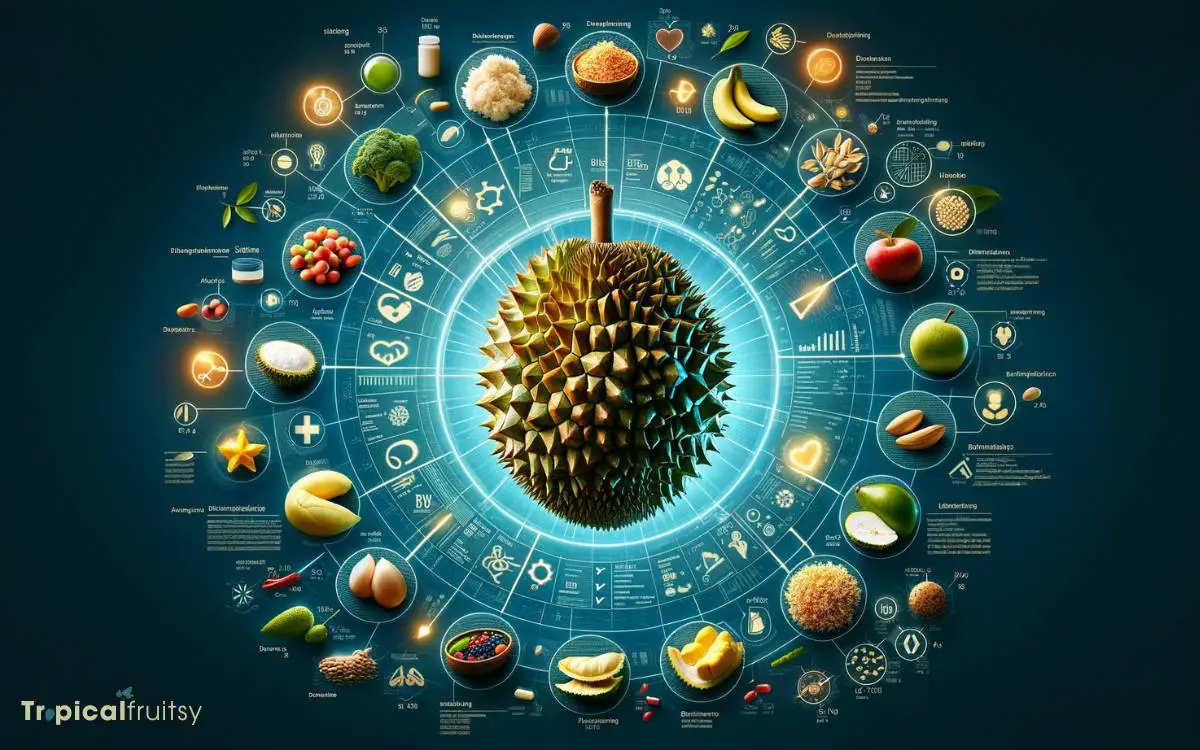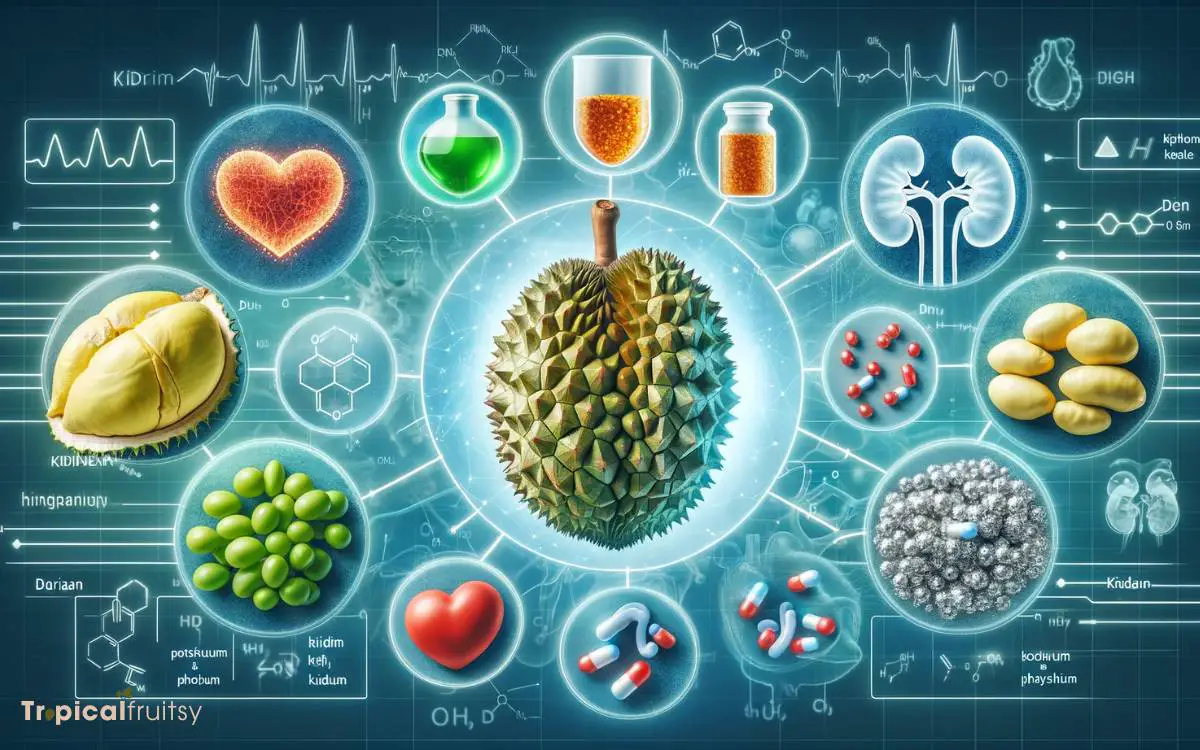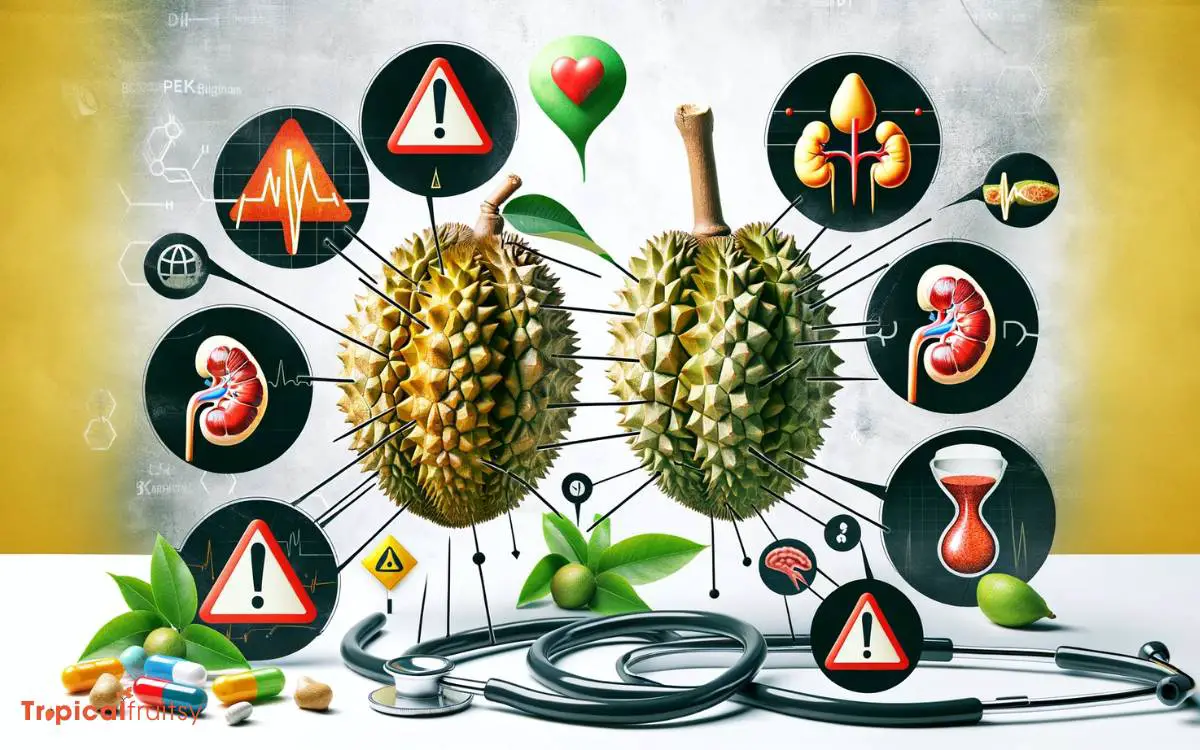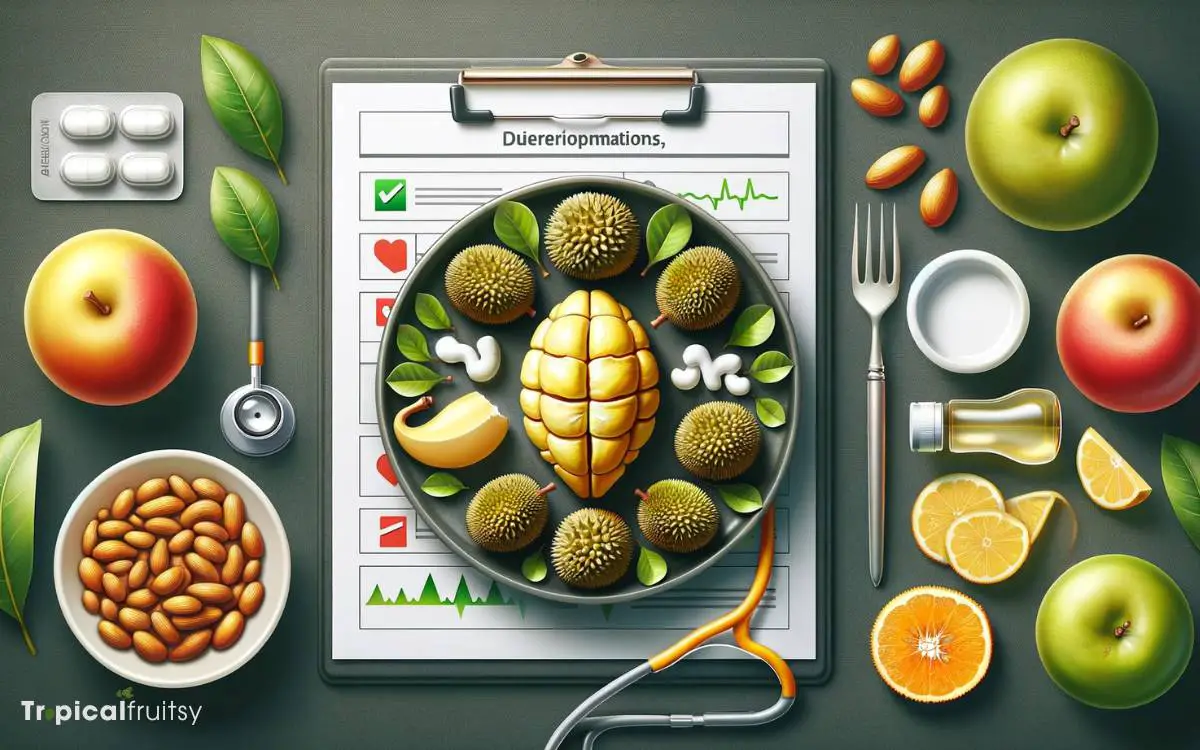Is Durian Good for Kidney? Unlocking Durian’s Potential!
Durian is not recommended for individuals with kidney disease due to its high potassium content.
While durian provides nutrients beneficial for overall health, its consumption should be monitored or avoided by those with compromised kidney function to prevent potential health risks.
Durian’s impact on kidney health is primarily due to its potassium level. Kidneys regulate potassium in the body, and when they are not functioning properly, high potassium foods like durian can lead to dangerous levels in the bloodstream.
Individuals with kidney issues should consult healthcare providers before adding durian to their diet.

Key Takeaway
Nutritional Impact of Durian on Kidney Health
| Nutrient | Amount in Durian (per 100g) | Impact on Kidney Health |
|---|---|---|
| Potassium | 436 mg | High levels can be harmful |
| Vitamin C | 19.7 mg | Generally beneficial |
| Dietary Fiber | 1.5 g | Good for digestion, less impact |
| Calories | 147 kcal | Consider for energy intake |
| Carbohydrates | 27.09 g | Monitor in diabetic patients |
| Fat | 5.33 g | Moderate amount, monitor intake |
| Protein | 1.47 g | Essential nutrient, monitor intake |
Understanding Durian Nutrition

Commonly consumed in Southeast Asia, durian fruit is rich in nutrients that are essential for maintaining overall health, including those that support kidney function.
This thorn-covered fruit is an excellent source of dietary fiber, which aids in maintaining bowel regularity and may help in reducing the risk of kidney stones by preventing the absorption of oxalates, a known stone-forming compound.
Durian is also packed with potassium, a mineral that plays a critical role in electrolyte balance and blood pressure regulation, which are vital for kidney health.
Vitamins C and B complex, found in durian, are essential for immune function and energy metabolism, respectively.
However, due to its high potassium content, durian should be consumed in moderation by individuals with compromised kidney function to prevent hyperkalemia.
Durian’s Impact on Kidneys

Building on its rich nutritional profile, durian can have both beneficial and potentially adverse effects on kidney health, depending on an individual’s overall health and kidney function.
Beneficial Impacts on Kidney Health:
- Nutrient Content: High in potassium and antioxidants, which may support kidney function and combat oxidative stress.
- Hydration: Durian’s high water content helps maintain hydration, crucial for kidney health and function.
- Dietary Fiber: Aids in maintaining a healthy digestive system, potentially reducing the kidneys’ workload.
Potential Adverse Effects:
- Potassium Levels: Could be problematic for those with compromised kidney function, risking hyperkalemia.
- High Sugar Content: May contribute to unhealthy weight gain and increased risk of diabetes, indirectly affecting kidney health.
- Purine Content: Can lead to uric acid accumulation, exacerbating conditions like gout and chronic kidney disease.
Potential Health Benefits

Beyond its complex impact on kidney function, durian provides several health benefits due to its rich composition of vitamins and minerals.
This tropical fruit contains substantial amounts of dietary fiber, which promotes bowel regularity and contributes to cardiovascular health by aiding in the reduction of cholesterol levels.
The high vitamin C content in durian acts as a potent antioxidant, which is essential for immune system function and collagen synthesis.
Furthermore, durian has a significant amount of potassium, an electrolyte that is crucial for maintaining proper heart function and regulating blood pressure.
| Nutrient | Benefit | Relevant for |
|---|---|---|
| Dietary Fiber | Enhances digestive health; lowers cholesterol | Cardiovascular system |
| Vitamin C | Boosts immunity; supports collagen production | Immune system, Skin health |
| Potassium | Regulates heart rhythm; manages blood pressure | Cardiovascular health |
These nutrients collaborate to fortify the body against various health concerns, while also supporting overall wellness.
Possible Risks for Kidney Patients

While durian is nutritious, certain components within the fruit may pose risks for individuals with kidney disease, particularly due to its high potassium content.
Elevated potassium levels can be harmful for those with compromised renal function, as their kidneys may struggle to maintain proper electrolyte balance.
High Potassium Content:
- Potassium is essential for normal cell function, but in kidney disease, excess potassium cannot be effectively excreted.
- Durian contains about 436 mg of potassium per 100 grams, which could contribute to hyperkalemia in susceptible individuals.
- Hyperkalemia can lead to dangerous cardiac arrhythmias and muscle weakness.
Patients with renal insufficiency must be cautious with durian intake and should consult healthcare providers to tailor their diet according to individual potassium allowances.
Dietary Recommendations and Moderation

Given the potential risks associated with durian’s high potassium content, moderate consumption is crucial for individuals with kidney concerns.
Kidneys regulate potassium homeostasis, and when their function is impaired, hyperkalemia may occur, potentially leading to adverse cardiovascular outcomes.
Therefore, patients with renal insufficiency should adhere to dietary guidelines tailored to their condition.
Healthcare providers often recommend a tailored diet plan that takes into account an individual’s lab results, kidney function, and nutritional needs.
| Nutrient | Recommendation for Kidney Patients |
|---|---|
| Potassium | Limit intake; avoid high-potassium foods |
| Phosphorus | Monitor and regulate as necessary |
| Protein | Adjust according to renal function |
| Sodium | Maintain low-sodium diet |
| Fluids | Balance intake with output levels |
Adherence to these dietary recommendations can help manage kidney health effectively. It is essential for patients to consult with a renal dietitian for personalized advice.
Conclusion
Durian, with its complex nutritional profile, presents a dichotomy for renal health. While offering beneficial micronutrients and antioxidants, the fruit’s high potassium content can pose risks for those with compromised kidney function.
Healthcare professionals recommend that individuals with renal concerns consume durian in moderation, balancing its consumption within a tailored dietary plan.
This nuanced approach ensures the harnessing of durian’s benefits while mitigating potential adverse effects on kidney health.






